![София Василева. Съюз на дружествата на художниците в България. Предистория, организация и дейност
1919–1945. [Издателство] О писменех/За буквите. С., 2012. 270 с., 1 сх., 2 факс.](/api/image/getissuecoverimage?id=picture_2013_26757.jpg)
We kindly inform you that, as long as the subject affiliation of our 300.000+ articles is in progress, you might get unsufficient or no results on your third level or second level search. In this case, please broaden your search criteria.
![София Василева. Съюз на дружествата на художниците в България. Предистория, организация и дейност
1919–1945. [Издателство] О писменех/За буквите. С., 2012. 270 с., 1 сх., 2 факс.](/api/image/getissuecoverimage?id=picture_2013_26757.jpg)
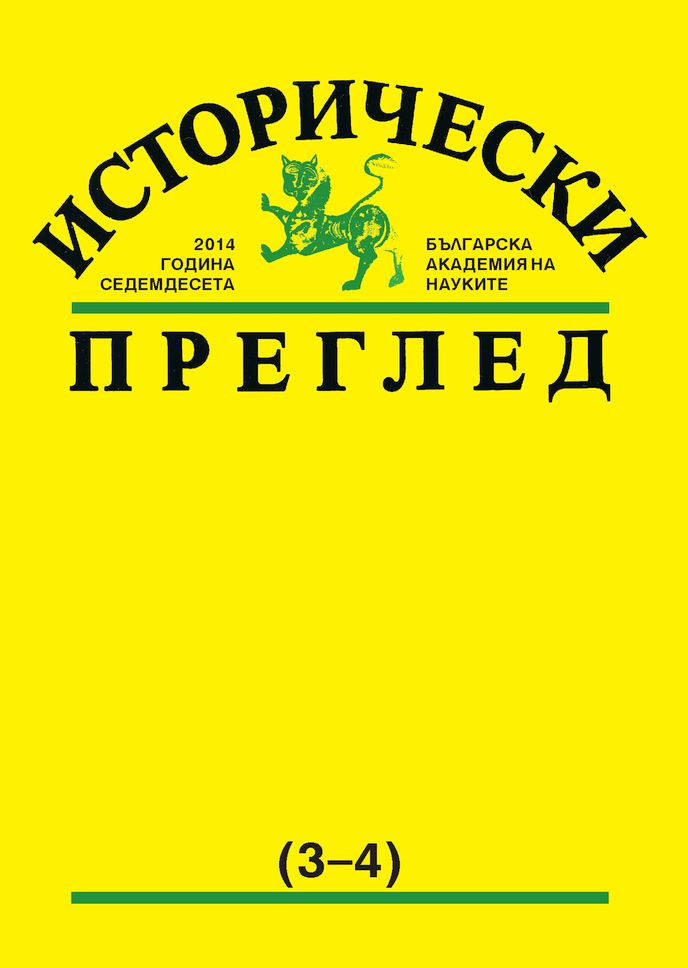
One of the most frequently used sources by the researchers about the crusades of Władysław Varnenchik and Yanosh Hunyadi of 1443–1444 are the “Notes of the janissary”, written by Konstantin Mihailovich. This source has been already reviewed by H. Kolarov. It also has been used by B. Cvetkova, K. Gagova and others. Till now, the only translation made in the Bulgarian historiography was of chapter XXVIII, revealing the government of the Ottoman Empire. There has been none known translation of the chapters describing the anti-ottoman campaigns from the middle of XV century. In the following paper will be translated chapters XXI, XXII and XXIII, dedicated to those campaigns. Chapter XXI describes the “Long campaign”. In chapter XXII are followed the abdication of sultan Murad II to his son Mehmed II and his later return to the throne. Chapter XXIII is dedicated to the Battle of Varna that took place on 10.XI.1444. The part from the “Notes of the janissary”, concerning the crusades of Władysław Varnenchik and Yanosh Hunyadi of 1443–1444 in its integrity could be accepted as a reliable source. Despite the existence of some inaccuracy in it, the comparison to the other historical data, lead us to the conclusion that this written source could be used by the researchers of this topic.
More...
An analysis of French Diplomatic Reports concerning economic activities on the most known annual fair on the Balkan territories of The Ottoman Empire
More...
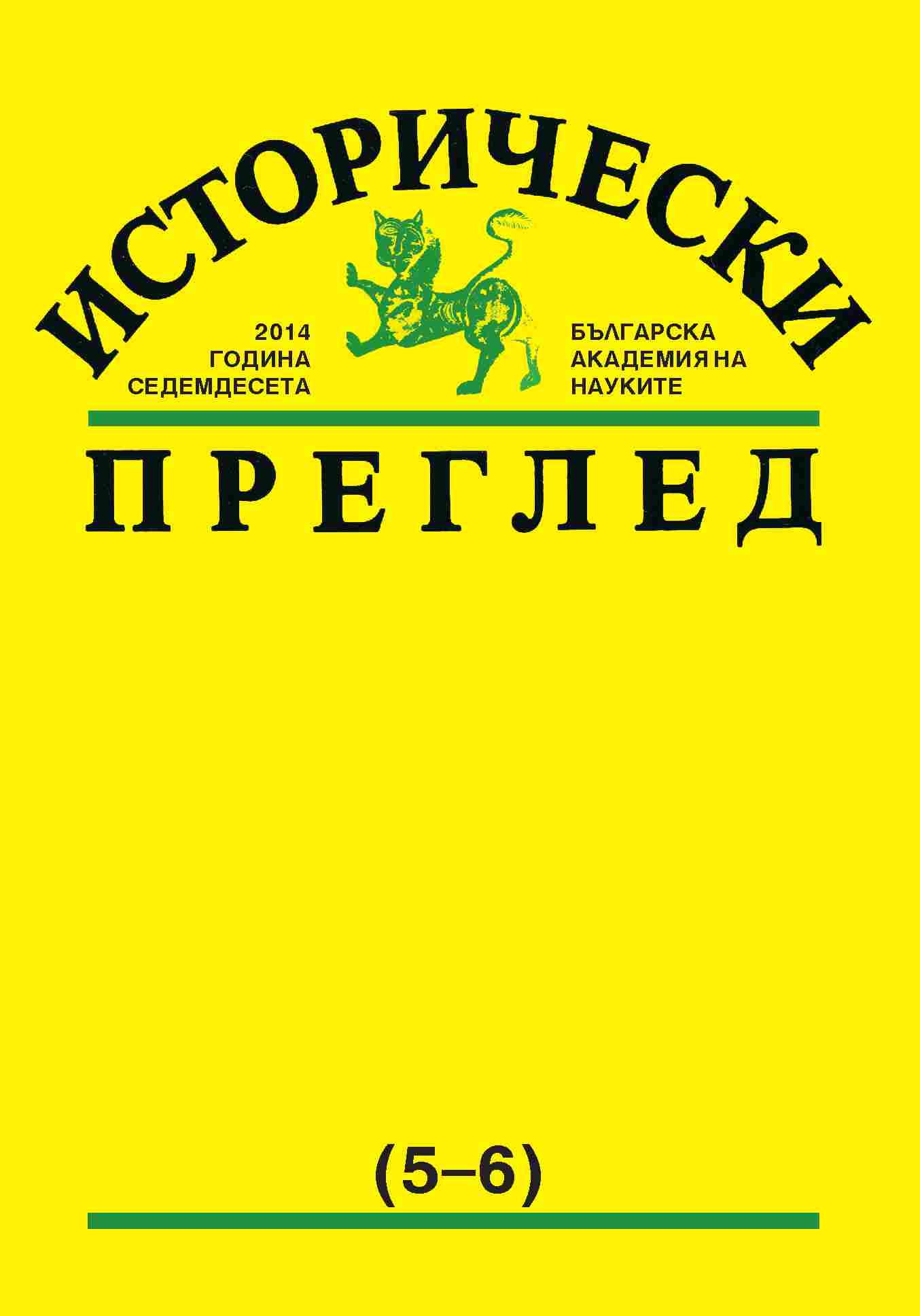
What is the promise of the new president Georges Pompidou about the main lines in his foreign policy? An answer is given based on unpublished documents of the Ministry of Foreign Affairs. They reveal views that he defended for 40 years as a statesman and a longtime associate of de Gaulle. Invariably, when a politician of the caliber of General de Gaulle comes off the stage, the issue of successor emerges, not only as a person with their quality but also as a politician with their future programme. This topic is especially crucial in France, where the president defines and controls the foreign policy. Documents by Bulgarian diplomatic representatives from the period of the administration of Charles de Gaulle and of Georges Pompidou allow us to answer questions such as: whether the foreign policy activity of the new head of state completely covered with that of the General with capital “G”; whether there were differences; in the context of which historical events they occurred; what were the personalities that affected its shape, both internationally and nationally. Thus the article reveals a Bulgarian view of the international relations in the period of the Cold War and fills a niche with these unpublished documents from the archives of the Ministry of Foreign Affairs.
More...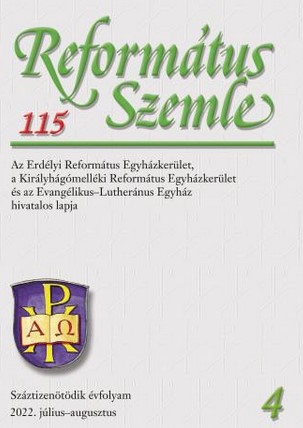

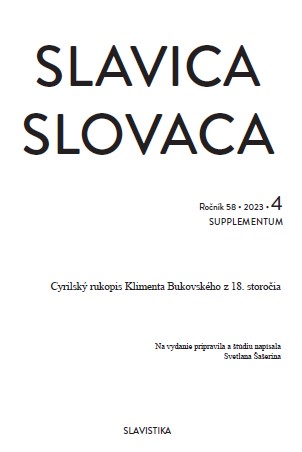
Manuscript of Kliment Bukovsky from the 18th century
More...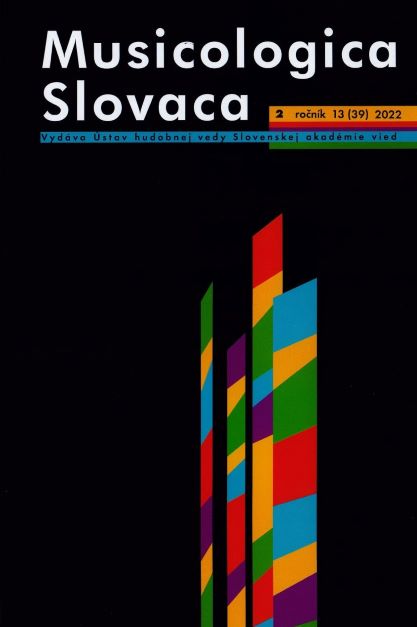
The most extensive collection of folk music recordings in Slovakia is situated at the Instituteof Musicology of the Slovak Academy of Sciences in Bratislava, in the Department forEthnomusicology. Its core consists of a historical collection of tape recordings from thesecond half of the twentieth century, acquired from all regions of Slovakia and from Slovakenclaves abroad. Today, it is a closed corpus comprising over three thousand five hundredtapes. For the most part, the sound recordings were made by the staff of the institute, whoperformed this documentation work as part of its long-term research projects. In terms oforigin, this internal collection includes two categories of recordings: originals and copies.Initially, the Sound Recordings Collection of Folk Music served scholarly purposes and wasused by the staff of the institute and their collaborators. Gradually, the collection has gainedhistorical value, and interest in it has recently increased not only among scholars but alsoamong the general public.
More...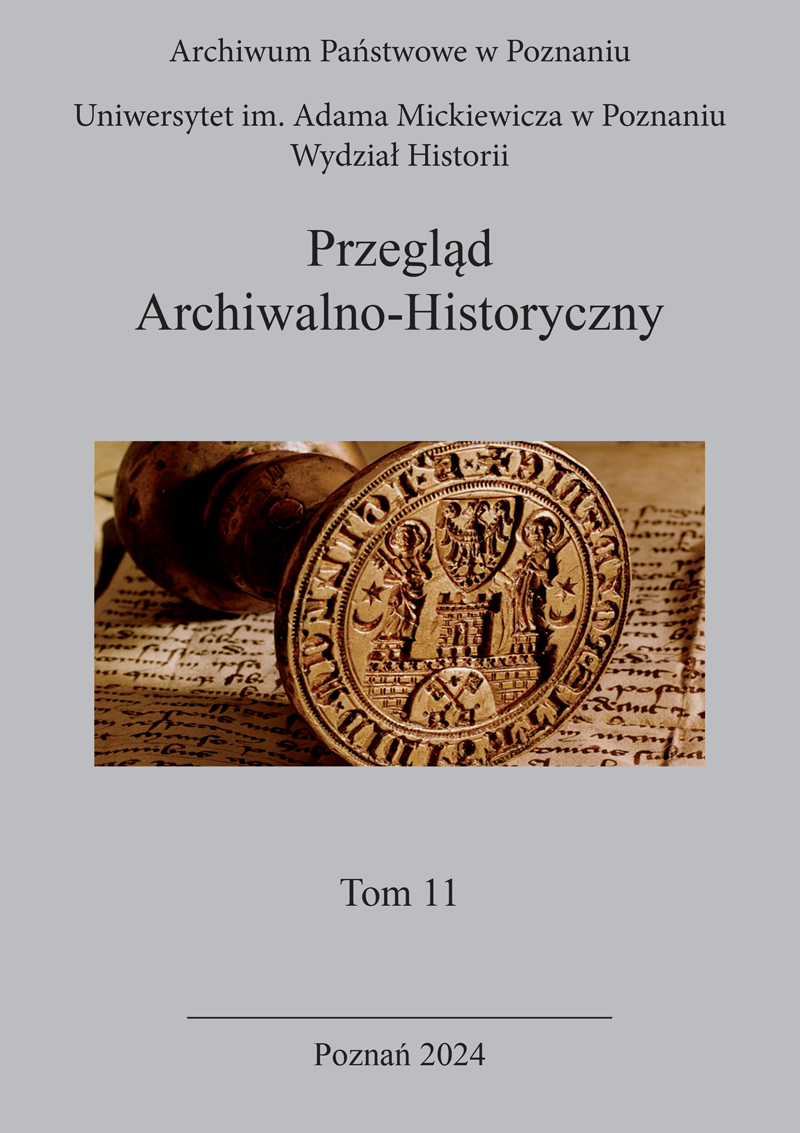
Tadeusz Esman wrote his memoir in the years 1976–1985, in order to tell his children more about his early years. The second part of his work discusses his childhood and youth in the Poznań neighborhood of Śródka, where he was born in 1903 and lived until his move to Bydgoszcz in 1927. In this part, his memories revolve around three subjects: his Auntie Bolesia, family, and neighbors. All three aspects reflect the daily lives of people living in Śródka at the time—where and how they lived and worked, their surroundings, architecture, and social relations. The author’s language is very vivid: he shares impressions from his childhood, recounts anecdotes from his family and social life in the Śródka market and Ostrówek area, and describes his relationship with family and neighbours.
More...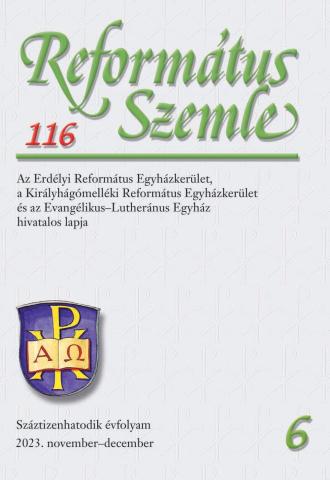
Az egyezményt elfogadó lutheránus, református és ezekből alakult uniált egyházak, valamint a valdensek és a cseh testvérek előreformátori rokon egyházai hitkérdésekben folytatott párbeszédjük alapján az evangélium itt következő közös értelmezését állapítják meg. Az evangélium közös értelmezése teszi lehetővé számukra, hogy az egyházi közösséget kinyilvánítsák és megvalósítsák. Hálát adva Istennek azért, hogy egymáshoz közelebb jutottak, egyúttal megvallják, hogy az egyházban az igazságért és az egységért folyó tusakodást mulasztás és szenvedés is kísérte, és kíséri.
More...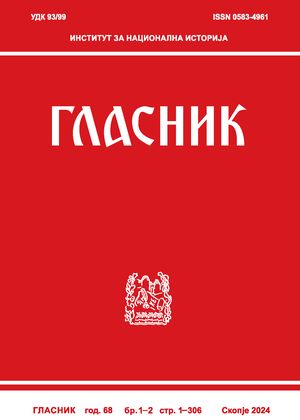
Pance Nedeljkovski was born on August 8, 1912 in Skopje. In the period between the two world wars, he was known under the name and surname Panta Nedeljković, an officer in the Army of the Kingdom of Yugoslavia, whose personal file we publish in this paper.
More...
Dimitar Vlahov is one of the most significant figures in 20th-century Macedonian history. Vangja and Kole Čašule, who prepared Dimitar Vlahov’s memoirs for publication, quite accurately underline: “Dimitar Vlahov is undoubtedly one of the indispensable and most exciting historical figures of the Macedonian revolution, a person whose contribution and historical significance Macedonian historical science will still study and value.”
More...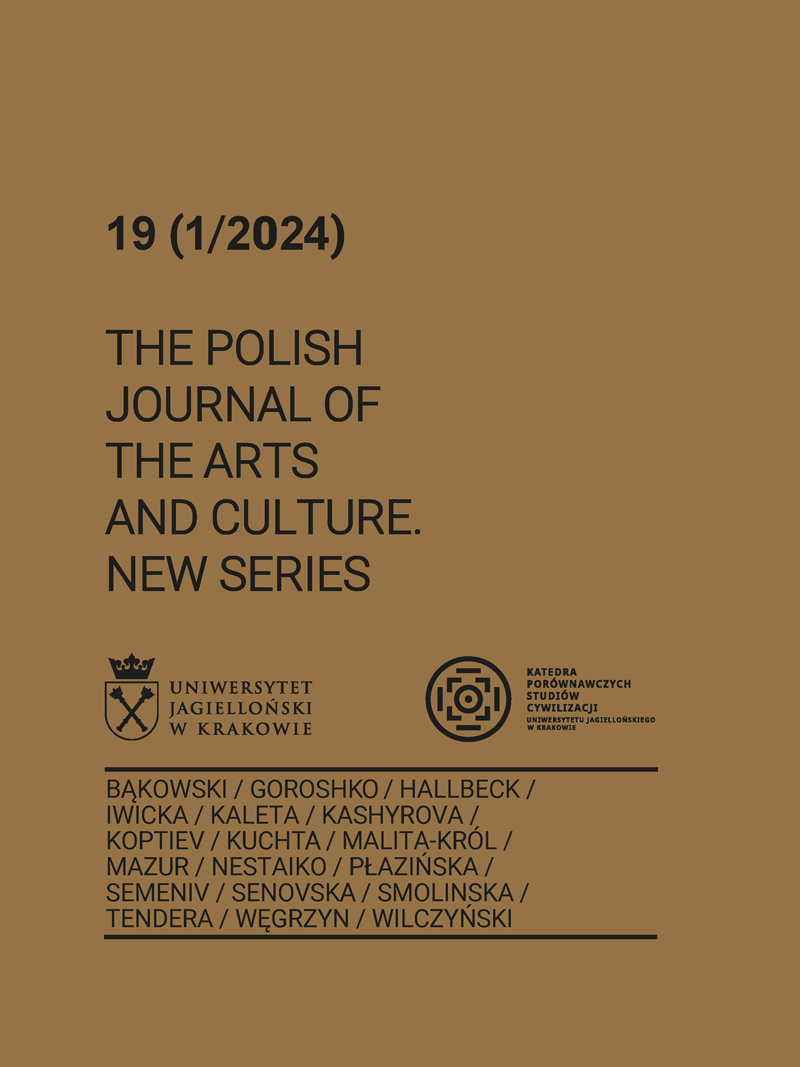
This paper presents an analysis of the subject matter and language contained in published notes and diaries written by Ukrainians in the first year of the Russian invasion which started on 24 February 2022. The primary literature includes two anthologies of passages, fragments, and sometimes just laconic excerpts from recorded oral interviews. The author approached the material in terms of three aspects of war diaries distinguished by Pawel Rodak: (1) existential-pragmatic; (2) material and (3) textual. All the recent Ukrainian private journals analysed stress the existential-pragmatic value of their testimonies, while the material aspect related to the medium seems less important, with the exception of Serhyi Zhadan’s diary consisting exclusively of regularly published Facebook posts. The textual aspect is characterised by the omnipresent reference to war, which turns private documents into potential sources for historians. As regards recurrent motifs, many diarists emphasise the sensations of being lost in time and/or space, also focusing on the disintegration of personality and the inadequacy of language to the harrowing war experience of witnesses who are no different from victims-survivors according to contemporary psychiatry.
More...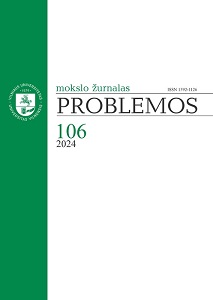
Pristatome dviejų Aristotelio veikalų – Apie aiškinimą (lot. De interpretatione, sen. gr. Περὶ Ἑρμηνείας) ir Apie dangų (lot. De caelo, sen. gr. Περὶ οὐρανοῦ) – fragmentus, Aliaus Jaskelevičiaus išverstus iš senosios graikų į lietuvių kalbą. Šie fragmentai besidomintiems modaline logika ir jos istorija svarbūs bent dėl poros priežasčių. Aristotelio veikalo Apie aiškinimą devintasis skyrius sulaukė gausaus tyrėjų dėmesio dėl jame aptinkamų šiuolaikinėje analitinėje filosofijoje reikšmingos atsitiktinių teiginių apie ateitį problemos ištakų. Ši problema – tai klausimas, ar ir kokią teisingumo reikšmę galime priskirti būsimojo laiko teiginiams, kurie nėra nei būtini, nei neįmanomi ir išreiškia informaciją apie vien tik galimai įvyksiančius įvykius.
More...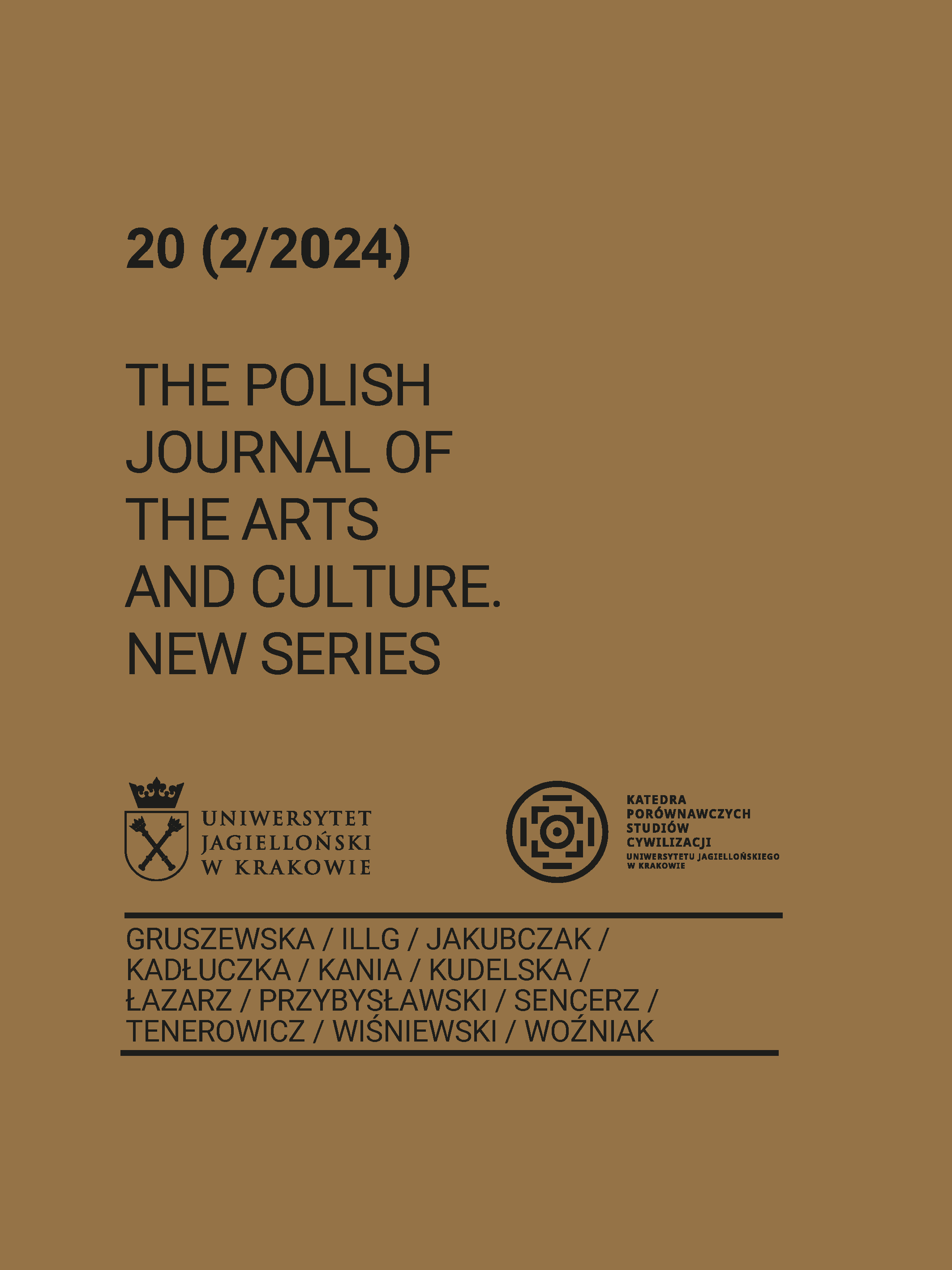

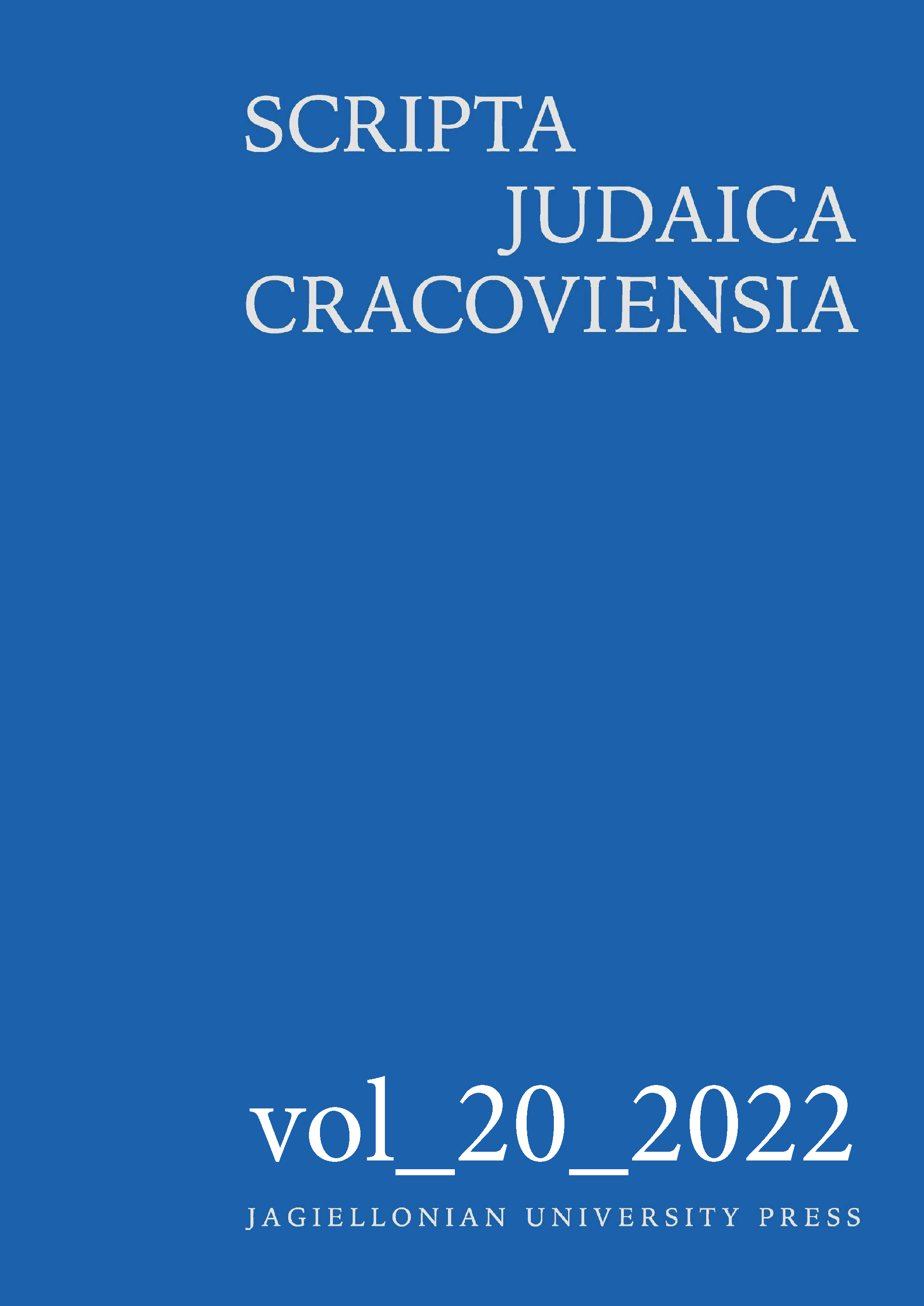
The article presents a text containing a printed Karaite Creed in the Jewish Neo-Aramaic dialect of Urmia (Orumiyeh) in Iranian Azerbaijan.
More...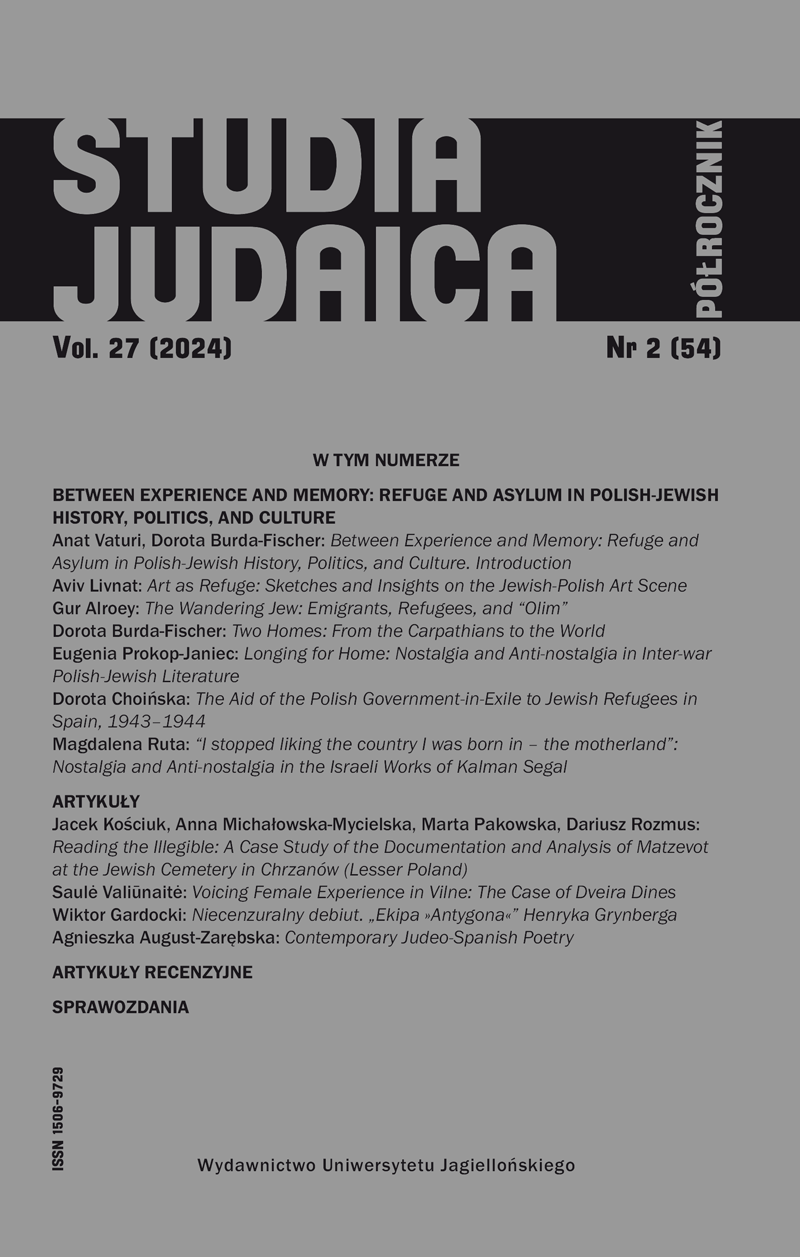
This article uses microhistory methods to explore the impact of the changes in the first half of the twentieth century and how they are represented in the egodocuments written by women. The research is based on previously unknown and unpublished autobiographies and diaries of seamstress Dveira Dines. Her egodocuments are considered from four perspectives: what were the challenges of being a woman; what can be learned about childrearing and healthcare; whether women’s egodocuments can be a chronicle of their generation; and what can they tell us about life in Vilne (Vilnius) and its people. The analysis of these documents shows that egodocuments written by women can help significantly expand our knowledge about everyday life and, in this case, can also show the historical events of that period from the perspective of an ordinary citizen or participant rather than an organizer or ideologue.
More...